- Home
- Carolyn Wells
In the Onyx Lobby Page 12
In the Onyx Lobby Read online
Page 12
CHAPTER XII
One Woman and Another
Bates' search for Gibbs or Corson resulted in finding the former in therooms of the late Sir Herbert Binney. Peters was also there, packing upthe personal effects of the dead man preparatory to vacating theapartment.
As sole heir, Bates was in authority regarding these effects, but he hadpaid little attention to them beyond giving orders to have them packedand stored for the present.
"Thought I'd dig around a bit," Gibbs vouchsafed, "but there's noindicative evidence that I can find. No papers of an incriminating sort,no sign of any special woman friend--or feminine enemy, for thatmatter."
"Never mind generalities or suppositions. Look here, Mr Gibbs, whatabout my aunt's connection with this matter?"
Gibbs looked up quickly. "Just what do you mean by that?"
"Only that I've heard that you are considering the possibility of herbeing implicated. Are you?"
"I'm considering any possibility I can find to consider. Yes, since youask me, I am looking into the question of your aunt's connection withthe case. I know you want me to be frank."
"I do. Have you any real evidence to work on?"
"Only talk. Only somewhat vague reports that I have yet to investigate."
"Reports, no doubt, from Mrs Everett, my aunt's longtime foe."
"Yes, that's the source of the hints I had given me. But Mrs Everettdoes not accuse your aunt----"
"She'd better not!"
"Oh, she doesn't. But the matter must be looked into, for there is amotive, and your aunt----Really, I can't discuss this thing with you, MrBates!"
"But you must. I'm in charge,--I'm going to find out who killed myuncle. I admit I hadn't a great desire to know his murderer, when Isupposed it was some girls or women with whom he was mixed up in afrivolous way. But if my aunt's name is so much as breathed, of course,I must discover the real murderer to save her reputation. She no moredid it than I did,--but I daresay the people who suspect her would alsoimplicate me!"
"Don't speak like that. I've only a hint to go upon, and though I mustfollow it up, it's an easy matter, no doubt, for all your aunt'shousehold to state an alibi and that settles it."
"Real alibis are not always easy to prove. It's your faked alibi that'sglibly detailed and sworn to. There's no one in my aunt's household butherself, myself, and Miss Gurney, her companion. We three were in ourbeds and asleep at the time of the murder, but we can't prove it by eyewitnesses! Naturally, there's no one to swear to it, except ourselves.Now, where does that lead you?"
"To further investigation. You know your aunt's paper-cutter wasfound----"
"That proves nothing. You must connect that knife undeniably with thecrime before you can use it against her."
"I grant that. But first, let's look into the motive. Your aunt did wantSir Herbert out of the way. She did say she wished he was dead. She didsay she would kill him herself if she were sure she'd never be foundout."
"I know she said those things, for I heard her,--not once, butrepeatedly. But my aunt is a quick-tempered and thoughtless-speakingwoman. She has time and again wished various people dead. She has oftenexpressed her willingness to kill certain people. But it meant nomore,--as she said it,--than for another to wish bad luck to them, orsay they hate them. She is most unguarded in her expressions andexaggerates always. These things must be understood by you before youaccuse her. She has frequently wished herself dead, but she didn't meanit any more than she meant it regarding Sir Herbert."
"All that will be considered and remembered, but we must question her."
"You'd better question me. I can tell you anything she can, and in amore satisfactory manner."
"Tell us all you like,--all you will, but we must also question MissPrall and Miss Gurney."
"All right, but there are other directions in which to look. Don't betoo sure that women committed the deed."
"No use your trying to throw over that dying statement. No use lookingfor a man in the case, with that note before our eyes. You know yourselfif a man or men had killed Sir Herbert nothing could have influenced himto write a denunciation of women. Why would he? What possiblecircumstance could explain it? Have you any theory that would fit thefacts?"
"No, unless a man killed him at the instigation of or in behalf of somewomen and Sir Herbert wanted the deed traced to its true source."
"Even that doesn't seem to make plausible a positive assertion that'women did this.' No, there's no getting away from that avowal. And, youmust see that the use of the plural,--women,--signifies collusion. Twoor more must be implicated. Not necessarily two or more present at themoment of the crime, but two or more to be found and punished."
"Yes, I see all that,--and I want to find the criminals as much as youdo. Especially now, since Miss Prall's name has been dragged in. But Ido want you to understand how little her hints at 'killing' anybodyreally mean. You know what an extravagant talker she is."
"I do know that, and I assure you I'll make all allowances. But I can'tleave any stone unturned."
The man Peters had been in and out of the room and, as he reappeared,Richard said, "You know Miss Prall, Peters. You know how carelessly shespeaks of serious things?"
"Yes, sir, I do. But you needn't tell me them little chickens ever hadany hand in the murderin'! Why, they just couldn't have had."
"Anything is possible, Peters," said Bates, sternly. "And I don't wantyou to make those definite statements. They mean nothing, save that suchis your opinion."
"But my opinions is pretty sound ones, Mr Bates, an' founded on a lot ofpersonal knowledge of Sir Herbert,--rest his soul. And I tell you,gentlemen, that that deed could never ha' been done by younggirls,--neither the little ladies that Sir Herbert was fond of kitin'round with nor yet the girls employed in this house. No, sir, thatfearful crime was planned and carried out by older heads than theirs.Men or women might 'a' done it,--but never little half-baked flapperslike them you're suspectin'."
"There's sense in that," mused Gibbs, and Bates flared out: "I supposethat leads you more certainly to suspicion of my aunt. But you're wrong,Gibbs, all wrong! Now, look here, suppose, just for a moment, there hadbeen no written message,--which way would you look then?"
"Toward some business complications," said Gibbs, promptly. "You see,Sir Herbert Binney was putting over an awful big deal in that matter ofhis Bun business. He had dickered with several big bakery companies andhe was a shrewd man at a bargain."
"And he was in bad with some of the men he was bargaining with,"vouchsafed Peters, who was a privileged participant in the conversation,because Gibbs hoped by this means to learn something from the valet.
"Who, for instance?" demanded Bates.
"Graham, of the Popular Patisserie concern; Vail, here in the house, andCrippen of Crippen's Cakes."
"Nothing doing," returned Gibbs, shortly. "I've dug into all thoseissues. He was off with the Patisserie people weeks ago. He finisheddiscussion with the Vail company some days since, and the only onepending was the Crippen bunch."
"Yes, and my aunt says he expected to see Crippen the night he waskilled."
"Well, he didn't," returned Gibbs. "I've looked up Crippen's alibi andit's gilt-edged. Vail was in the elevator with Bob Moore at the time ofthe murder,--that lets him out and the Patisseries are back numbers. Imean they got through with Binney's Buns as a working proposition, longago."
"They might have come back to it," suggested Bates.
"Sure they might,--so might Crippen or Vail. But they didn't,--or ifthey did, we've no tiniest speck of evidence of it. If you can get any,go ahead. You don't know of anything against the Bakery men, do you,Peters?"
"No, sir. But Mr Crippen and Mr Vail have both been here----"
"Here! In Sir Herbert's rooms?" cried Bates. "What for?"
"Mr Vail, he just dropped in, as he was passing by, and he looked roundthe room, like in idle curiosity. He said, 'Poor old chap, he was a goodsport,' and went away. That wasn't so strange, for he oft
en used to dropin for a chat with my master. But Mr Crippen, now, he never came here,that I know of, while Sir Herbert was alive. But the day after he died,Mr Crippen comes with a sort of determined air, and he wants to lookround,--and more, he wants to look over Sir Herbert's papers. Of course,I didn't let him do that, but it seemed sorta queer,--didn't it, now?"
"Maybe and maybe not," said Gibbs. "I suspect there might have been aletter from himself that he wanted to get possession of, or somethinglike that. I say, as I have said from the first, if it were not for thewritten paper, I might have suspected these business men, but I'm surethat's the very reason Sir Herbert did write the paper, so we would notgo off on a wrong tack. It proves to me the determination of his strongmind to lead us in the right direction and not let us pursue the mostobvious but mistaken course of looking into the Bun matters."
"I agree with you on the face of things," said young Bates, with a sigh,"and if you hadn't mentioned Miss Prall, I'd let you go your own gait,but now you have mentioned her, I shall get into the game myself andspare no effort or expense to dig up the truth! And, first of all, I'mgoing back to Bob Moore. I don't think he knows anything more than he'stold, but I do think I can learn more from him now I've got my mad up!"
"Come on, I'll go with you," and Gibbs accompanied the young man to theelevator.
Moore was not in the house, and Bates, determined to learn something,went to Julie Baxter, who was at her switchboard.
He took her, Gibbs following, to a small reception room, where theycould be by themselves.
"Now, Julie," Bates said, "you've got to come across with the true storyof your doings the night of the murder. You are not suspected, but youwill be if you don't 'fess up. It's a fool thing to do, to refuse totell, when continued silence may get you in very bad. So, out with it."
"You did the same thing yourself, Mr Bates," and Julie glared at him."You refused to tell----"
"But I'm not a woman; they can't suspect me. Also, I'll tell, if I haveto. My story won't incriminate me. Go ahead, now,--let's hear."
"I'll tell where I was, if you'll promise not to tell anybody else."Julie looked obstinate, though evidently a good deal frightened.
"I'll promise, if the secret can be kept without hindering ourinvestigation. Agree to that, Gibbs?"
The detective agreed, and Julie went on. "Specially, I don't want BobMoore to know. We're engaged and he's awful particular about where I go,when he isn't along. And I've never gone any place or done anything hewouldn't want me to, except that very night. I went with a crowd on atrip to Chinatown. It wasn't any harm, but we were out late, and if heknew it, he'd give me the dickens. You won't tell, will you? And, too,if the manager knew it, he'd think I was a different sort of a girl fromwhat I am. So, please don't tell."
"No; we won't tell," promised Bates. "Unless, of course, we find youhaven't told the truth, or the whole truth,--in that case, you'll beshown up! I never suspected any connection of yours with the wholematter, but if you've told the truth just now, it will go no further. Iknow you're not given to frisking about, and I think myself it's just aswell Moore shouldn't know of this one occasion. By the way, did youstudy to be a nurse?"
"I began the course of training, but the work was too hard for me and Igave it up the first year and took up telephoning."
"Did you," asked Gibbs, suddenly, "did you know any one else in thehospital, or wherever you were, who studied nursing, and who is in anyway connected with the people interested in this murder?"
Julie hesitated and her face flushed a little.
"I don't think I ought to mention it,----" she began, and Gibbs cried:
"Of course you ought to mention it! If you're innocent it can do you noharm, and if the one you tell us of is innocent it can do her no harm."
"But it may stir up suspicion quite wrongly," objected the girl.
"Then the suspicion will fall to the ground. Don't be afraid; you areonly helping justice along. If it's a real help you must give it, and ifnot, it won't be followed up."
But Richard Bates looked grave.
"Oh, I don't know, Gibbs," he said; "somebody must have started thistrend toward my aunt, and it's made me pretty miserable already. Now,need we take up a new trail with only a sort of surmise on this girl'spart. For, surely, she is by no means ready to make a positiveaccusation."
"Out with it, Julie," commanded the detective with no apparent notice ofBates' demurrer.
"Well, it's only this," and Julie looked relieved at the thought ofunburdening herself; "when I was in training, the girls used to talk ofKate Holland, who was there many years before, but who seemed to be asort of a star pupil. I don't remember much that they said, only she wasrenowned for her surgical skill, and when I heard Bob tell how themurderer of Sir Binney was a knowing one, I couldn't help thinking abouther. You know she's Mrs Everett's maid."
"Oh, Lord!" Bates groaned, "don't drag the Everetts into this thing!It's bad enough to have my people spoken of without attacking theEveretts too!"
"Nobody has attacked them yet," said Gibbs, dryly; "don't go too fast."
"But you will! You'll suspect Kate because of what Julie has said, andthen you'll go on to Mrs Everett and----"
"H'm,--you seem to inherit your aunt's trait of hasty speaking. Betterstop where you are, Bates. Don't put ideas into my head!"
"I don't have to! You're all primed to take up this new outlook. I knewJulie's tales would upset things! Just because Mrs Everett's maid hashad training, doesn't argue her a murderess!"
"Nobody said it did!" exclaimed Gibbs, angered at the young man's words,partly because they were so in line with his own thoughts.
"In fact," and Bates looked very sober, "in fact, Gibbs, I'd ratheryou'd suspect my aunt than the Everett crowd!"
"But nobody has voiced any suspicion of the Everett crowd----"
"You don't have to voice it, for me to know what you have in yourmind----"
"And that Kate Holland is a terrible woman----" began Julie.
Richard silenced her with a look.
"Julie," he said, sternly, "don't you dare mention one word of KateHolland in connection with this matter! If you do, I'll tell both Mooreand the house management of your Chinatown trip."
"That's right," agreed Gibbs. "You're not to mix into this thing in anyway, Julie. You run along now, and remember, it's just as Mr Bates said;if you breathe a word of anything you've heard or said in here with us,we'll show you up good and plenty, and we may do a little exaggerating,too! Is it a bargain?"
"Yes, sir, it is!" and Julie Baxter went out of the room, glad to beassured of the safety of her own secret.
"Now, Bates, you may as well face the music," Gibbs began. "You mustknow that in the back of everybody's head has been an unspoken thoughtof higher up people than chorus girls or elevator attendants. Thoseyoungsters don't commit murder,--such a thing is unknown. But olderwomen with deeper motives must be considered. You say you want to findthe murderess in order to relieve your aunt from any hint of suspicion.Do you want to do so if the trail leads toward the Everett household?"
Richard Bates seemed suddenly to have grown years older. Hisgood-looking young face turned to an ashen hue, and his eyes were wildand staring.
His voice shook as he replied, "I say, Gibbs, I don't know what I want!I'm knocked galley-west. I don't believe for the thousandth part of asecond that either Miss Prall or Mrs Everett have one speck of knowledgeof the deed, but you know the very mention of their names would be likefire to tow in the newspaper reports."
"Of course it would. Yet what can we do? However much I keep myinvestigations quiet, there's a gang of reporters nosing abouteverywhere. They've likely got hold of Julie already----"
"She won't tell anything."
"She won't mean to,--but they'll frighten or trap her into it. There'snothing so dangerous as a woman with a secret of her own to guard.She'll babble of everything else."
"What do you advise?" Bates was clearly at the end of his rope. He wasbeseeching of manne
r and despairing of tone.
"Straightforwardness, first of all. I'm going at once, either to MissPrall or to Mrs Everett, and make them come across with somethingdefinite. If they don't know anything,--I'll find that out, at least."
"Go first to my aunt, then. I'll go with you,--come along. Get all youcan out of her, I'm not in the least afraid!"
The two men went up to the Prall apartment and Bates opened the doorwith his own key.
"Here's Mr Detective, Aunt Letty," he said, trying to speak lightly; "hewants a little chatter with you."
Miss Prall looked up from her book.
"Be seated, Mr Gibbs," she said, with quiet dignity. "How do you do?"
"How do you do?" the detective returned, not quite at ease, in thepresence of her forbidding manner. "I'm sorry to intrude----"
"Then don't," interrupted Letitia, her large, strong face frowning athim. "Why make us both sorry?"
"Because it must be done." Gibbs gathered firmness from her ownattitude. "This matter of the murder of Sir Herbert Binney is ofsufficient importance not to wait on convenience or pleasure."
"Quite right. And what have you done? Nothing, as usual? When oneremembers that the crime occurred nearly a week ago, and no steps haveyet been taken to apprehend the criminal----"
"Pardon me, Miss Prall, many steps have been taken, and they have led ina definite direction."
"Good gracious, where!" The spinster was startled out of her calm and alook of concern spread over her face.
"First, tell me if you have any suspicions?"
"I have not, but if I had I'd never tell you, so long as they weremerely suspicions. If I could prove them, I'd tell quick enough!"
"But I may help you to prove them--or disprove them."
"That's just it; if you disprove them, I'm covered with shame andconfusion at having hinted them."
"All right, I'll do the hinting. Or, rather, I'll speak right out. Whatdid you do with the paper-cutter from your library table,--I see thereis an empty sheath still there?"
"That?" and Miss Prall glanced casually at the sheath in question.
"The paper-knife was broken and I gave it to Sir Herbert Binney, who hadpromised to get it mended for me at some specialty place he knew of.Why?"
"Because that was, probably, the weapon that killed him."
If Gibbs had expected any sudden telltale blush or confusion on MissPrall's part, he must have been disappointed, for she only said:
"Indeed! How could that happen?"
"I don't know, but the knife has been found, in peculiar circumstances,and I'd like to know just when you gave it to him to get it mended."
"Oh, I don't know; several days before his death. Perhaps four or fivedays, or a week. Go on."
"The knife,--if that was the one,--was driven into the body in such away as to make it likely that the hand that thrust it was the hand ofsome one experienced in surgical lore----"
"Hah!" the exclamation given by Miss Prall was full of meaning. Itseemed to imply a sort of triumphant surprise, a welcome knowledge, alooked-for and longed-for state of things.
"This gives strength to your suspicions?" insinuated Gibbs.
"It does," and the Grenadier sat up even straighter and her face waseven more indicative of elation as she added, "it does, indeed!"
"And perhaps you will tell us to whom your suspicion points?" urged thedetective.
"That I will do," she declared, but Bates broke in with a "Hush, AuntLetitia! I command you not to speak!"

 The Deep Lake Mystery
The Deep Lake Mystery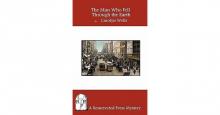 The Man Who Fell Through the Earth
The Man Who Fell Through the Earth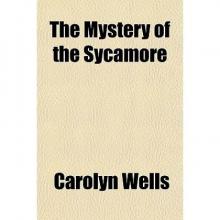 The Mystery of the Sycamore
The Mystery of the Sycamore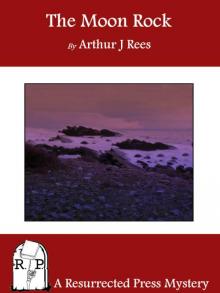 The Mystery Girl
The Mystery Girl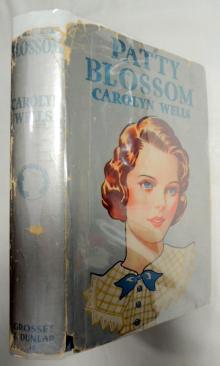 Patty Blossom
Patty Blossom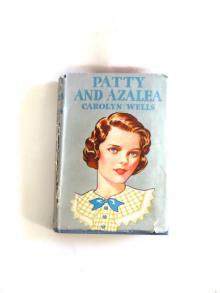 Patty and Azalea
Patty and Azalea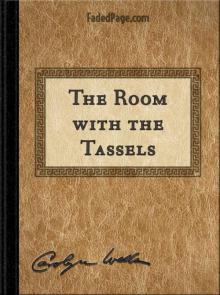 The Room with the Tassels
The Room with the Tassels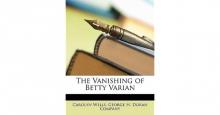 The Vanishing of Betty Varian
The Vanishing of Betty Varian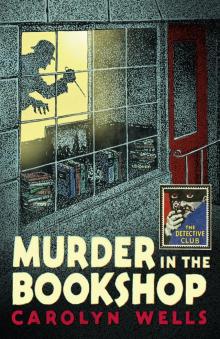 Murder in the Bookshop
Murder in the Bookshop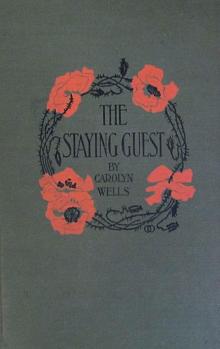 The Staying Guest
The Staying Guest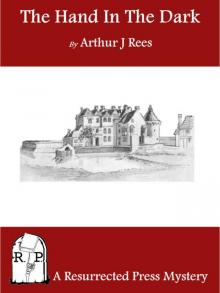 The Curved Blades
The Curved Blades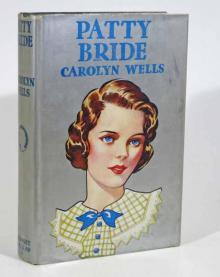 Patty—Bride
Patty—Bride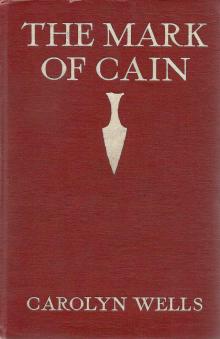 The Mark of Cain
The Mark of Cain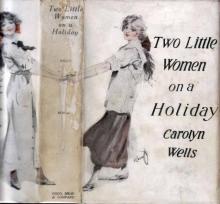 Two Little Women on a Holiday
Two Little Women on a Holiday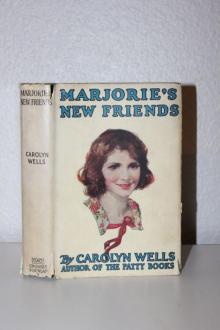 Marjorie's New Friend
Marjorie's New Friend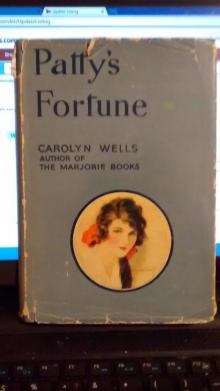 Patty's Fortune
Patty's Fortune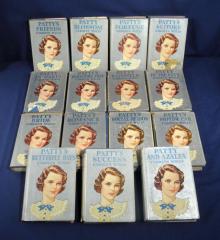 Patty's Social Season
Patty's Social Season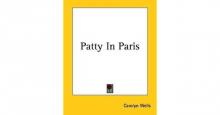 Patty in Paris
Patty in Paris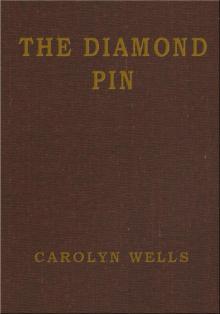 The Diamond Pin
The Diamond Pin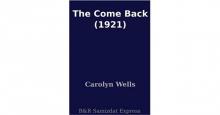 The Come Back
The Come Back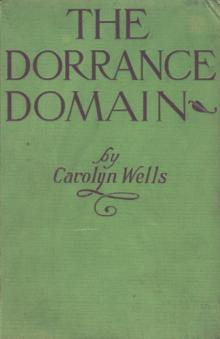 The Dorrance Domain
The Dorrance Domain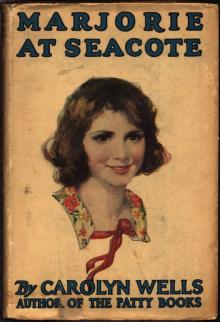 Marjorie at Seacote
Marjorie at Seacote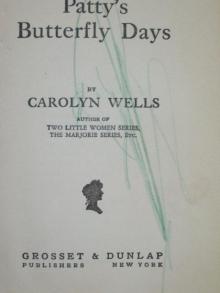 Patty's Butterfly Days
Patty's Butterfly Days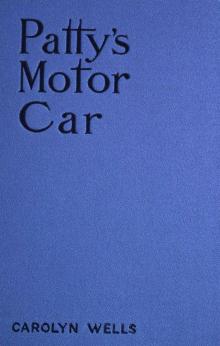 Patty's Motor Car
Patty's Motor Car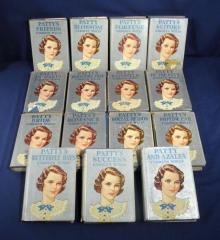 Patty's Success
Patty's Success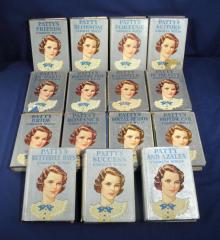 Patty's Suitors
Patty's Suitors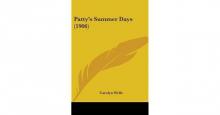 Patty's Summer Days
Patty's Summer Days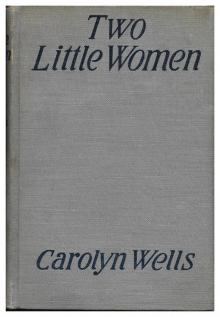 Two Little Women
Two Little Women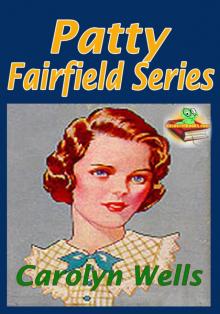 Patty Fairfield
Patty Fairfield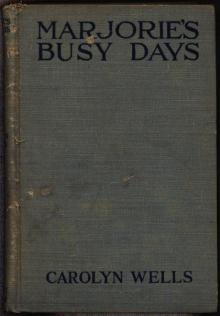 Marjorie's Busy Days
Marjorie's Busy Days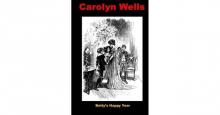 Betty's Happy Year
Betty's Happy Year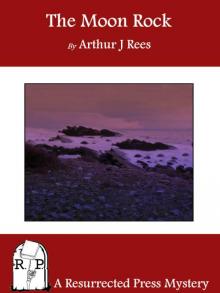 In the Onyx Lobby
In the Onyx Lobby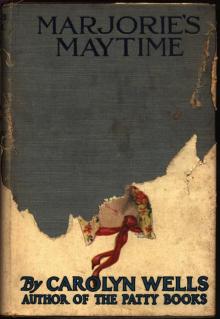 Marjorie's Maytime
Marjorie's Maytime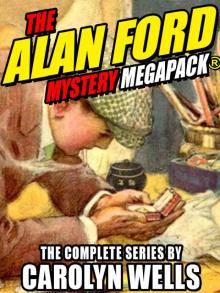 The Alan Ford Mystery MEGAPACK®
The Alan Ford Mystery MEGAPACK®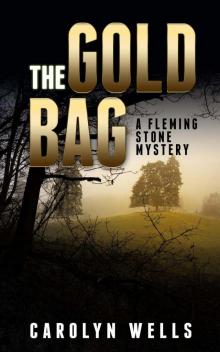 The Gold Bag
The Gold Bag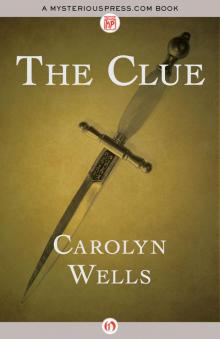 The Clue
The Clue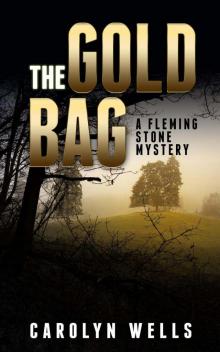 The Gold Bag : A Fleming Stone Mystery
The Gold Bag : A Fleming Stone Mystery